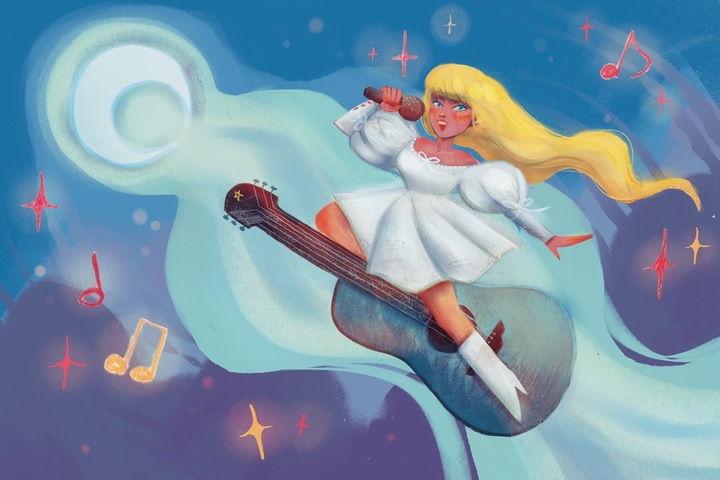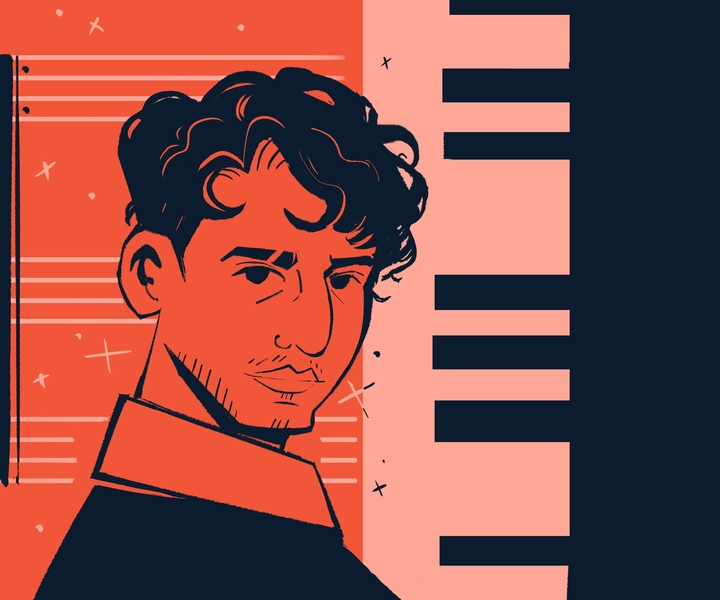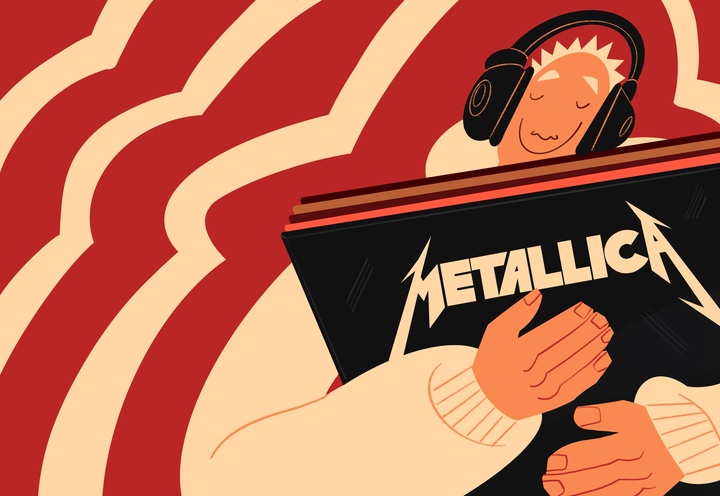Written by Flora Cerabino-Hess. Illustration courtesy of Fon Leigh.
If you’ve never looked further than the sexy hunk of man meat in Carly Rae Jepsen’s 2012 hit music video “Call Me Maybe,” then you’re missing out.
Now that we have distanced ourselves from the overplayed, overproduced pop of the 2010s, we must give credit to the creators of this uniquely calculated musical genre. If you’ve been in pop/musical spaces, you’ve probably run across people unraveling the reign of Swedish maestro producer Max Martin. Most people claim he’s the inspiration of this sound, but I believe that what allowed it to survive was artists like Carly Rae Jepsen.
Jepsen started her pop princess career in the frankly unruly “Canadian Idol,” where she blundered her way through to the top three. But her second studio album, entitled “Kiss,” held the gem that would push her to worldwide stardom, “Call Me Maybe.”
I was 7 years old in my school gymnasium when I first heard “Call Me Maybe.” A group of older boys jokingly put it on. I was extremely familiar with pop music at the time, to the likes of Ellie Goulding, Ariana Grande, Tove Lo, and Charli XCX – so Carly felt like she’d be the inevitable new princess of pop. But for some reason, she disappeared. The public consciousness of one Miss Carly Rae was wiped to “one hit wonder” status. It wasn’t until March 2015, when she released her single “I Really Like You” from her third album, that she reappeared. Please note that it was accompanied by the most objectively ridiculous music video, where Tom Hanks lip-synced atrociously.
Her third album, “Emotion,” brought many shifts for Jepsen. Most importantly, she garnered herself an undeniable shift in demographic. Her audience began to boom with the voices of 20-30 year old queer people, mostly men. They embraced her and her fun-loving persona, which only made Jepsen more dedicated. Jepsen played in queer festivals, pride parades, and has spoken out about queer issues for years now.
While her music has been dubbed “narrative-free” and “derivative,” her fans are diehard. From the bold musical grips of “Call Me Maybe” to the memes made of “Run Away With Me,” Jepsen stays present on the internet and with her fanbase. She does not fear the labels put on her, she embraces them. It is camp and silly, the very characteristics that pop music was built on.
(Camp in this sense, is a queer term, suggested to have derived from the French term se camper, meaning “to pose in an exaggerated fashion.” In this case, it means ostentatious.)
Carly is in no way completely original; she didn’t pioneer the pop experimentation of that era. But she did everything fearlessly. She never wavered to making music that wasn’t “her,” and that is something you must admire.
If you choose to ignite the Carly Rae Jepsen flame inside your heart, here are my recommendations based off of 2010s pop hits to get you started.
| If you like: | Then try: |
| I Think He Knows (Taylor Swift) Oh Caroline (The 1975) | Want You In My Room and When I Needed You |
| Out of the Woods (Taylor Swift) Supercut (Lorde) | Gimmie Love |
| Got Me Started (Troye Sivan) One More Time (Daft Punk) | Psychedelic Switch and Joshua Tree |
| Anything But Me (MUNA) Stockholm Syndrome (One Direction) | Run Away With Me (Warning: most iconic saxophone solo) |
| Headlock (Imogen Heap) Break Free (Ariana Grande) | Making The Most of The Night |
| Is It Over Now? (Taylor Swift) | Comeback (Produced by Jack Antonoff so duh.) |
| One of Your Girls (Troye Sivan) Yuck (Charlie XCX) | Shy Boy |
| What I Want (MUNA) Girls in Bikinis (Poppy) | Your Type and Joshua Tree |


